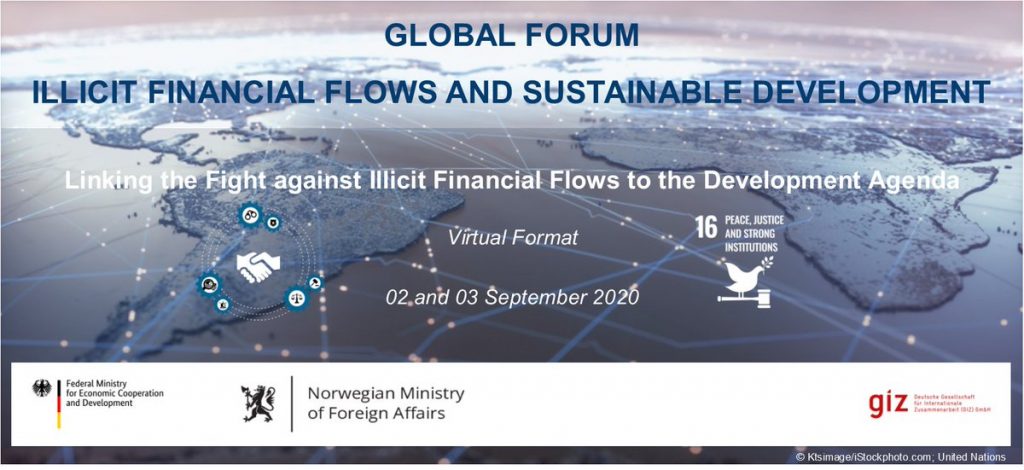
On 3rd September 2020 CiFAR participated in the first Global Forum on Illicit Financial Flows and Sustainable Development, organised by the German and Norwegian governments. One of the workshops we organised focused on the potential of international targeted sanctions to fight corruption.
Alongside CiFAR’s Lucia Cizmaziova, who moderated the sanctions session, panelists included: Clara Portela (Senior Associate Analyst, EUISS), Titus Ogalo (Programme Coordinator, Transparency International Kenya), and Oliver Windridge (Senior Adviser, The Sentry).
The use of international sanctions against corruption perpetrators
While financial centres have at times used sanctions to freeze the assets of corrupt officials in the past, following the Arab Spring in 2011 the use of sanctions in Europe and North America as a first response to the uncovering of large-scale kleptocratic practices became much more widespread.
In 2016, the United States established a first sanctions regime aiming to punish individuals and entities behind grand corruption cases, alongside human rights violators anywhere in the world. The Global Magnitsky Act (US Executive Order 13818) has served as a model for other countries to adopt their versions of this targeted sanctions regime. Baltic countries adopted their versions of the law, Canada adopted the Justice for Victims of Corrupt Foreign Officials Act (Sergei Magnitsky Law), and most recently the United Kingdom’s Global Human Rights Sanctions Regulations 2020, adopting only human rights focus and pledging to add corruption later.
The EU has also committed to the adoption of Magnitsky-style law, however, after two years, the legislation is nowhere in sight. A number of challenges specific to the EU are likely slowing down the creation of the new sanctions regime and will result in targeting only human rights violations, not corrupt behavior. Among such obstacles is for example the threat of judicial challenges due to litigation in front of the Court of Justice of the EU (CJEU), which have occurred in the case of misappropriation sanctions.
The misappropriation sanctions were applied by the European Union on deposed leaders and their entourage in Tunisia and Egypt in 2011 and in Ukraine in 2014. While most of these sanctions designations are effective until today, the EU has not used sanctions against corruption perpetrators ever since.
The link between sanctions and SDGs
With the use of blacklisting, visa bans, and asset freezing measures against corruption perpetrators who might otherwise act with impunity, targeted sanctions could help contribute towards achieving the Sustainable Development Goals (SDGs). This could be done directly by increasing the financial resources available for the financing of SDGs but also indirectly by promoting just and strong institutions as called on by the SDG 16. As emphasised by the Norwegian Minister of Foreign Affairs Ine Marie Eriksen Soreide in her opening remarks at the Global Forum on IFFs and SDGs: “As long as secrecy and misuse of power persists, poverty will remain, markets will fail and democracy will not thrive”.
As a new topic, the extent of sanctions’ effectiveness in contributing to the fight against corruption and advancing asset recovery is still not clear. The experience from Kenya shows that the visa ban imposed by the US on the former attorney general and later a popular senator, Mr. Amos Sitswila Wako for his inaction in corruption prosecutions, have not brought about clear results. While the blacklisting has certainly drawn attention to the conduct of Mr. Wako in the public office, the absence of information pointing towards his “involvement in significant corruption” made it easy for him to challenge the decision, but made it difficult for local civil society to advocate for further action on and investigations of the alleged corrupt practices.
Due to the threat that kleptocracies pose for the attainment of Sustainable Development Goals, and due to the slow recovery of the misappropriated public assets, there is a clear need to use new international policy tools to tackle corruption. Nevertheless, much more evidence is required to understand under which circumstances can sanctions be most effective in contributing towards this goal.
